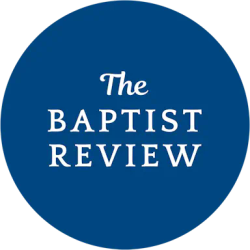I lifted my ballot to dissolve the ERLC. As I did, I realized that the person to my immediate right, a couple seats down, works for the ERLC. Since my vote said that person’s job should be eliminated, I felt that I should offer some explanation. That staffer listened graciously, respectfully, and patiently.
What follows expands a bit on what I shared.
For the ERLC to be worth saving, it needs to embrace three vital principles:
1. The ERLC needs to understand its appropriate role in the SBC.
Any honest assessment of our Convention will acknowledge that the ERLC’s assignment is not the highest priority for our cooperation. Overseas missions brought us together, and overseas missions is the largest portion of our SBC budget allocation. Church planting and ministry training follow both chronologically, and in our budget allocation. The ERLC emerged later. Its budget is miniscule in comparison. Nevertheless, its role is beneficial. Losing our religious liberty will hamper our cooperation. Losing our ethics will stain it. Glaring ethical failure at ourConvention’s birth reminds us of our capacity for stain. The nature of the ERLC’s ministry assignment offers it a voice disproportionate to its budget. ERLC leaders need to recognize thatdynamic. The SBC gave the ERLC that voice deliberately, but it must deploy that voice judiciously.
2. The ERLC needs to comprehend the damage it can cause.
Everyone sees political polarization intensifying across our nation. As a nationwide Convention, that polarization spills over and affects us. That is not the ERLC’s fault. That is our fault as Southern Baptists—particularly we who are pastors, but also our congregations. Politics and public policy matter immensely, but they don’t matter as much as our gospel mission. Many of us are deeply attached to our political identification. Too often, allegiance to political tribes trumps allegiance to our cooperative mission as Southern Baptists, and even allegiance to our local churches. In this environment, the ERLC needs to speak with care. It must represent the consensus established among Southern Baptists by our stated understanding of biblical truth. When the ERLC unhitches from that guiding principle, it quickly frustrates Southern Baptists on either—or both—sides of difficult issues. Its role is beneficial, but hazardous. Since the Cooperative Program funds the ERLC, frustration directed toward the ERLC often reverberates to harm state conventions and national entities—entities that are more foundational to our gospel mission.
3. The ERLC needs to stand down on public policy issues that divide Southern Baptists, especially when we have not addressed those issues as a Convention.
For several years I served on our state convention’s Ethics & Religious Liberty Committee. I remember distinctly our first meeting, in which our staff liaison explained that our convention’s Executive Board insisted that the Committee limit its activities to the language of the BF&M and resolutions previously adopted by our state convention. That policy set clear parameters. It prevented a host of problems. Occasionally, it meant we declined to engage on an issue where we believed we were on solid ground. But we understood that whatever positive effects our engagement might have had, the cost of a misstep was far greater to our Convention’s core mission. Our state Executive Board understood the priorities of our partnership.
The ERLC has not imposed similar parameters on its advocacy. The result has been not only harm to itself, but also to the broader SBC and its entities. I recall four specific examples:
- While the SBC has expressed clear support for Ukraine, we never expressed support for war funding. I suspect that was a deliberate choice by our 2022 Resolutions Committee. Even if was not, the ERLC advocated for policy the Convention never adopted.
- While the SBC has broadly urged public officials “to implement preventative measures that would reduce gun violence and mass shootings,” we never authorized the ERLC to advocate for specific “red flag” measures, as it did in the Tennessee legislature. Again, the 2018 SBC resolution avoided specifics, because the churches of our Convention have not found widespread consensus.
- While the SBC has spoken clearly against abortion, the ERLC opposed anti-abortion legislation in Louisiana that placed criminal penalties on women who have abortions. The SBC has never affirmed language on either side of that specific issue, and our churches are clearly divided on it.
- While the SBC would affirm the words of Scripture regarding civil government and public officials, we certainly would not find consensus on the specific sentiments expressed by the ERLC on our behalf toward President Biden.
I want to be clear. I personally agree with the ERLC on some of these public stances. Nevertheless, I object to its decisions to engage on those issues. I don’t want the ERLC to say things I agree with, if saying them will unnecessarily erode our gospel partnerships. I understand that people gifted in matters of ethics and public policy have strong opinions on a wide range of issues. But an organization that represents a diverse Convention—one that can undermine support for the core mission elements of the entire Convention—must exercise restraint. It needs to know when to stand down on an issue. If it cannot do that by nature, or if it chronically fails to do so by choice, then the ERLC needs to be dissolved. I hope that it can succeed, and that dissolution proves unnecessary.
Finally, I want to express a bit of a vision of what a successful future might look like. A few brief points:
The ERLC needs strong board supervision. I perceive that a common problem among SBC trustee boards is that trustees offer too much cheerleading to entity leadership, and not enough accountability. We’re nice people. We love our entities. And we should support them. But sometimes we fail to realize that our entities and their leaders will be better supported if we shape agendas, ask invasive questions, and set clear guidance. Board meetings belong to trustees, not staff. Entity leaders are not well-served when we rubber-stamp initiatives or defer to them on organizational direction. Our passivity underminestheir success if we fail to help them anticipate opposition from churches.
The ERLC needs, at least for a time, a more narrow, disciplined mission. Its ministry assignment doesn’t say the “conscience of the Convention,” as some suggest. Rather, the ERLC provides “research, information resources, consultation, and counsel…” Excel at that. Rebuild trust on a narrower set of priority issues. Recover footing. Once the ERLC reestablishes a steady foundation and flourishes, then expand—with appropriate board supervision.
The ERLC needs to limit itself to positions specifically stated by the BF&M and SBC resolutions. The ERLC doesn’t decide our stance on difficult issues. It “represent[s, emphasis added] Southern Baptists in communicating the moral and ethical positions” we’ve adopted. Should circumstances suggest an exception, trustees must lead with utmost caution.
The ERLC needs to love deeply and listen sincerely to Southern Baptists with whom they disagree strongly. It needs to love pastors and churches more than the public square. The ERLC needs pastoral leadership—not necessarily pastor, but leaders with exemplary pastoral instincts.
Finally, the ERLC needs to fear God more than it fears scorn from society and the media, and marginalization by public officials.
I believe this would be an ERLC worth saving. May we never again entertain a motion to dissolve it—because it would never enter our minds to find that motion necessary. We want the ERLC to succeed. I believe it can. But if it cannot, or simply will not, then it must go. Our cooperation in the gospel, for the sake of the name of Jesus, is far too precious.


